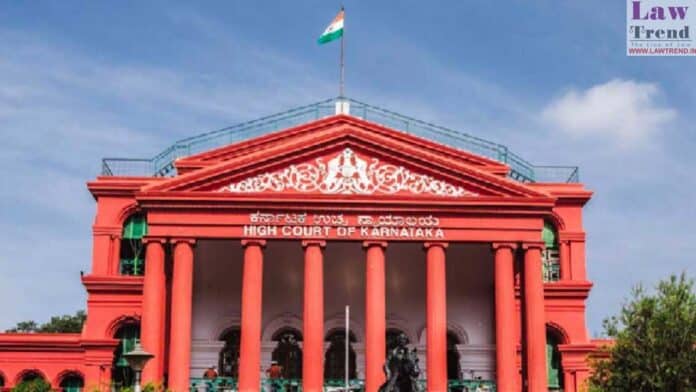The High Court of Karnataka has refused to give direction to the Indian authorities as sought by two minor Pakistani citizens to grant them citizenship.
The minors had approached the HC through their mother who is an Indian. Their father is a Pakistani and the two — a 17-year old girl and 14-year old boy — were born in Dubai and now reside in Bengaluru with their mother Ameena.
Justice M Nagaprasanna in his judgement said that they had renounced their Pakistani passport but not the citizenship of that country. As per laws of Pakistan they can renounce their citizenship only after turning 21. In those circumstances, they cannot be granted citizenship of India.
“…the children as on today, are not Stateless. They are citizens of Pakistan. They have only surrendered the passport but they have not renounced citizenship of Pakistan; mere surrender of the passport does not amount to renunciation of citizenship. Unless such renunciation comes about, no directions could be issued to the Ministry of External Affairs, to consider the case of the mother for grant of citizenship to the children,” the court said.
“Therefore, it is for the mother, to place all those materials that are sought for by the authorities, to consider grant of such citizenship in favour of the petitioners. No mandamus would lie in the peculiar facts of this case,” the HC said in its recent judgement.
Ameena was married to one Asaad Mallik in 2002 and divorced in 2014. She returned to Bengaluru to her parental home in 2021. She sought to bring her children with her and the Indian Consulate in Dubai granted the children temporary passports on humanitarian grounds. But it was subject to the citizenship status of the children after they surrendered their Pakistani passport.
The Pakistani authorities declared the two cannot renounce their citizenship till they turned 21. When her request to the Ministry of Home Affairs was not answered she approached the HC.
The HC, however, pointed to the Citizenship Act and said “Section 5(1)(d) of the Act mandates that both the parents are required to be Indian citizens for the purpose of grant of citizenship to the minors and, therefore, it is clearly indicated in the order that all the documents which would be necessary for grant of citizenship should be produced before the Authorities.”
“If the law elsewhere, i.e., Pakistan does not permit renunciation of citizenship by minors up to a certain age, the law of this nation would not permit grant of citizenship to such persons. Therefore, it is for the mother of the petitioners to produce all the documents necessary before the concerned Authorities in India for an Indian citizenship to be accorded in terms of the Act.”
The HC said the Indian laws cannot be violated to grant citizenship to the two minors.
“If laws of Pakistan are inflexible to a situation of this kind; so are the laws of this nation, which cannot be made flexible in the peculiar facts of this case. The children who are now seeking Indian citizenship can seek only after they renounce the citizenship of Pakistan as admittedly, the biological father is a citizen of Pakistan. The children are declared to be citizens of Pakistan.”
“The mother may be an Indian citizen, unless violence is done to the language of the Citizenship Act, 1955, the children cannot be granted citizenship as they are already citizens of Pakistan and this Court by its order would not indulge in any such violence to the language of the mandate of the statute,” it said.
However if they fulfil the necessary conditions, the authorities can grant them citizenship according to law.
“The rejection of the writ petition will however not come in the way of the respondents Authorities — in considering the case of the petitioner, in the event, they fulfill all the necessary requirements,” the HC said.




